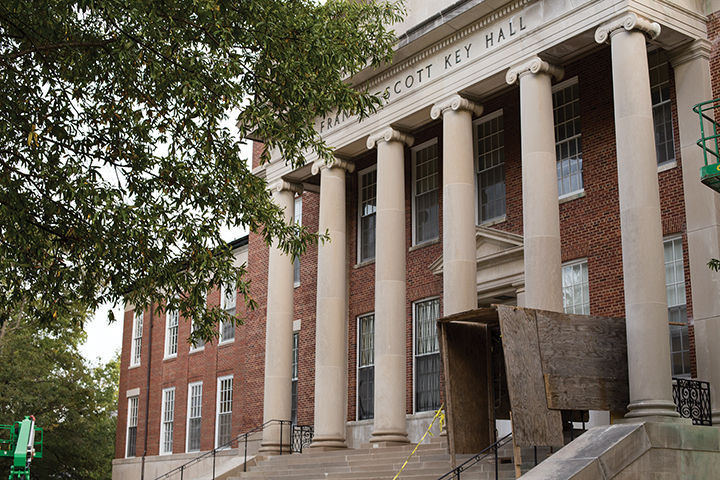Views expressed in opinion columns are the author’s own.
Air conditioning is so indispensable it’s often taken for granted. It’s not until you’re sitting in a crowded lecture hall on a hot day with 200 other students — all sweating profusely — that you realize how important it is.
Last Tuesday and Thursday, I attended classes in Tydings Hall and Skinner Hall and was almost suffocated by the overwhelming humidity. Needless to say, I had difficulty paying attention during lectures and focusing during my midterm.
When five buildings suddenly lose air conditioning, I expect the University of Maryland to be prepared to deal with the consequences. But it didn’t seem to be. Instead of addressing the issue by relocating students or offering academic resources to affected students, this university waited until Friday to issue an official statement, four days after the chilled water line broke.
This university has repeatedly failed to dedicate sufficient time and effort to address air conditioning issues. At the beginning of last fall semester, temperatures were consistently above 90 degrees. There were multiple complaints from students who struggled to live in dorms without air conditioning. Notable testimonies include, “It feels like 100,000 degrees. It’s so hot!” and a student who slept on the ground with a fan blowing on her to cope with the heat.
Air conditioning is an urgent issue with an immediate, detrimental impact on our well-being. Last week, I struggled to focus during my classes in Tydings and Skinner Hall. Most of my peers shared my sentiments. Instead of suffering the entire hour and 15 minutes in that sweltering room, some of them just left. If classroom conditions reach the point of physically impairing students’ concentration, this university needs to act.
I assumed that someone would’ve contacted my professor and arranged an alternative lecture hall, especially since I was in an introductory class with about 200 students. But to my disappointment, nothing was done; not only did administrators fail to provide any solutions, they seemingly neglected the urgency of the issue by postponing repairs. According to an ELMS message from my professor, she was informed that the air conditioning would be fixed by Thursday or Friday. To my understanding, this has yet to be accomplished.
For students living in dorms without air conditioning, high temperatures adversely affect their quality of life. As The Diamondback reported, no dorm without air conditioning had an average heat index below 80 degrees during the span of its investigation, and average daily temperatures for one dorm reached as high as 90.1 degrees. Dorms that don’t have air conditioning consistently reach temperatures and humidity levels beyond what’s practical to live in.
According to a study conducted in the International Journal of Environmental Research and Public Health, higher temperatures had a significant impact on an individual’s ability to fall asleep and the quality of their resulting sleep. It can also induce a loss of appetite. Students living in these conditions have even said they believe they’re at a disadvantage compared to their peers. It’s disappointing that this university can’t fulfill its minimal obligation to its student body by guaranteeing that their residences offer them reasonable living conditions.
Air conditioning, like many other issues at this university, has become satirized to the point that it’s become a meme. But these light-hearted jokes ironically reflect a disturbing theme: this university’s repeated failures in dealing with key issues. As much as I’d like to joke about sweating through my shirt during an exam, I’d rather see the university appropriately respond to the underlying issue.
Kevin Hu is a sophomore physiology and neurobiology major. He can be reached at kevxhu@gmail.com.



